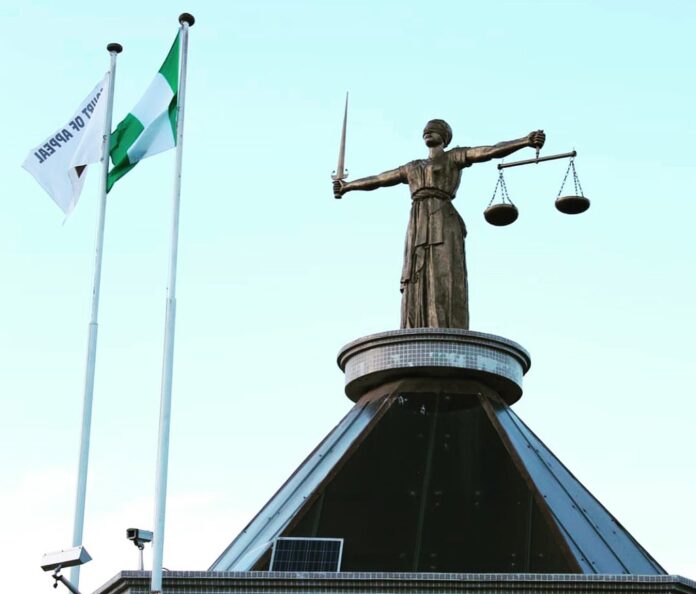The administration of President Bola Ahmed Tinubu is facing a lawsuit filed by the Socio-Economic Rights and Accountability Project (SERAP) over the recent 50 percent increase in telecom tariffs announced by the Nigerian Communications Commission (NCC). SERAP has described the tariff hike as arbitrary, unconstitutional, and unfair.
The tariff adjustment, which took effect following the NCC’s directive, has raised the average cost of calls from N11 to N16.5 per minute. The price of 1GB of data has increased from N287.5 to N431.25, while SMS rates have gone up from N4 to N6. These changes have sparked widespread criticism from consumer rights advocates and ordinary Nigerians who are already grappling with economic challenges.
SERAP’s lawsuit, filed at the Federal High Court in Abuja on Friday under case number FHC/ABJ/CS/111/2025, seeks to challenge the legality of the tariff hike. The rights group contends that the decision is a violation of citizens’ rights to freedom of expression and access to information. The NCC is joined as a co-defendant in the case.
Key Demands of the Lawsuit
In its filing, SERAP is asking the court to declare the NCC’s decision as unlawful and unconstitutional. Specifically, the group wants the court to determine whether the unilateral approval of the tariff hike complies with legal standards on fairness and reasonableness.
SERAP’s lawyer, Ebun-Olu Adegboruwa, SAN, argues that the NCC failed to follow due process and did not adequately consider the economic implications for consumers. “The NCC’s decision violates the Federal Competition and Consumer Protection Act 2018, the Nigerian Constitution, and international human rights laws,” Adegboruwa said in a statement.
The group is also seeking an interim injunction to restrain the NCC and telecom companies from implementing the tariff increase until the case is resolved. “The increase threatens to make communication inaccessible for many Nigerians, particularly those in low-income brackets,” SERAP’s statement read.
Allegations Against the NCC
SERAP’s lawsuit accuses the NCC of breaching consumer protection laws and failing to uphold constitutional guarantees. According to the group, the tariff hike disregards international standards on freedom of expression and access to information.
The lawsuit highlights that citizens have a fundamental right to communicate and share information without undue financial burden. SERAP argues that these rights are protected under the Nigerian Constitution, the African Charter on Human and Peoples’ Rights, and the International Covenant on Civil and Political Rights—all of which Nigeria is a signatory to.
Economic and Legal Implications
The tariff hike has generated significant debate among stakeholders. Critics argue that the increase will disproportionately affect low-income Nigerians who rely heavily on affordable telecom services. Many fear that the higher costs will exacerbate existing economic hardships in the country.
Legally, the case raises questions about the NCC’s adherence to statutory guidelines and its accountability to the public. SERAP claims that the commission’s decision was made without sufficient stakeholder consultation, a requirement under the Federal Competition and Consumer Protection Act. The group also alleges procedural breaches in how the hike was approved and communicated to the public.
SERAP’s Reliefs Sought
SERAP is asking the court for the following declarations and orders:
- That the NCC’s decision to increase telecom tariffs by 50 percent is arbitrary, unfair, and a violation of citizens’ rights to freedom of expression and access to information.
- That the tariff hike breaches sections 104 and 127 of the Federal Competition and Consumer Protection Act 2018, as well as section 39 of the Nigerian Constitution.
- An interim injunction restraining the NCC, its agents, and telecom companies from enforcing the new tariffs.
- A court order setting aside the NCC’s approval of the tariff hike for being unconstitutional and unreasonable.
Background on SERAP’s Advocacy
SERAP is known for its legal actions aimed at promoting transparency and accountability in governance. The organization has previously filed lawsuits against government agencies and public officials over issues such as corruption, human rights violations, and abuse of power.
In this case, SERAP’s focus is on protecting Nigerians from what it views as an unjustified economic burden. The group’s advocacy reflects growing concerns about the affordability of basic services in the country.
Public Reaction
The tariff hike has drawn sharp criticism from consumer advocacy groups, labor unions, and ordinary citizens. Many Nigerians have expressed frustration over the rising cost of living, which has been compounded by recent fuel price increases and the removal of subsidies.
“This increase is coming at a time when Nigerians are struggling to make ends meet,” said Chinedu Okeke, a consumer rights activist. “It will limit access to communication and widen the digital divide.”
Telecom operators, on the other hand, have defended the hike, citing rising operational costs and inflation. According to industry sources, the tariff adjustment was necessary to ensure the sustainability of telecom services in the face of economic challenges.
What Lies Ahead
No date has been set for the hearing of the case, but the outcome will have far-reaching implications for the telecom industry and consumer rights in Nigeria. If successful, SERAP’s lawsuit could lead to a reversal of the tariff hike and set a precedent for greater accountability in regulatory decisions.
Meanwhile, the debate over the tariff hike continues to unfold, with stakeholders calling for more transparency and inclusivity in policy-making. As Nigerians await the court’s decision, the issue remains a critical test of the balance between economic realities and the protection of citizens’ rights.

